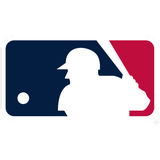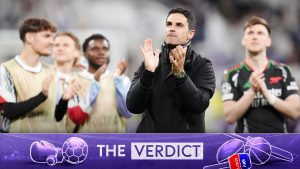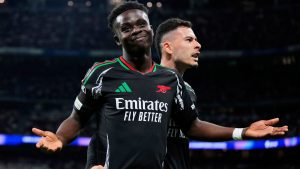Midseason MLB manager firings: Do they make a difference in the second half?


By Rowan Kavner
FOX Sports MLB Writer
Each of the past three months, a major-league manager has lost his job.
The timing, reasons and expectations — some more valid than others — have varied.
With the reigning NL MVP in Bryce Harper, aces in Zack Wheeler and Aaron Nola, notable free-agent signings in Nick Castellanos and Kyle Schwarber, and the fourth-highest payroll in baseball, the Philadelphia Phillies didn’t like where they sat at 22-29. They fired manager Joe Girardi on June 3.
Four days later, the Los Angeles Angels let go of manager Joe Maddon amid a historic losing streak. The 12-game skid tied for the longest in a single season in franchise history and reversed course after a terrific start by an Angels club that was 27-17 and in second in the division when the slide began. The Angels had a sub-.600 OPS and an ERA over 6.00 during the skid. Of course, we know now that was more representative of the team, which is 56-73 as of Aug. 30, with an owner exploring a sale of the franchise.
Sometimes, it doesn’t even take a losing record for a manager to be shown the door. The Toronto Blue Jays fired Charlie Montoyo on July 13, despite a 46-42 record that would’ve had the team creeping into the playoffs with the final wild-card spot had the season ended that day. Still, it wasn’t where general manager Ross Atkins envisioned his team, which began July by going 3-9.
Finally, the most recent manager firing seemed to be a case of conflicting expectations. The Texas Rangers’ ownership invested more than $500 million in free agents Corey Seager, Marcus Semien and Jon Gray this offseason, though there were still obvious holes in the roster. The Rangers were 51-63, third in the AL West, when the lack of progress by a team that hasn’t made the playoffs since 2016 led to Chris Woodward’s departure on Aug. 15. Two days later, president of baseball operations Jon Daniels was fired, too.
How have these teams fared since making their managerial changes?
PHILLIES
Joe Girardi: 22-29 (.431)
Rob Thomson: 50-28 (.641)
Result: Much better. Things got back on track under Thomson, despite the Phillies’ playing without Harper for two months. The Mets and Braves have established themselves firmly at the top of the NL East, but Philadelphia would hold a wild card if the season ended today.
BLUE JAYS
Charlie Montoyo: 46-42 (.523)
John Schneider: 23-16 (.589)
Result: Slightly better. Schneider’s second half has gone in waves. Toronto came out of the All-Star break winning eight of 10 games, then the Orioles presented some serious issues in early August. After dropping nine of 12 games, Schneider’s Blue Jays got back on track, winning seven of eight overall before being swept by the Angels over the weekend.
RANGERS
Chris Woodward: 51-63 (.447)
Tony Beasley: 7-6 (.538)
Result: Better in a very small sample. It has been just two weeks, so there isn’t much to go off of here. The competition level of the Rangers’ latest opponents hasn’t been particularly great, but Beasley does have a winning record in that small sample.
ANGELS
Joe Maddon: 27-29 (.482)
Phil Nevin: 29-44 (.397)
Result: Worse. The Angels continued their free fall after Maddon’s departure. Generational talents Shohei Ohtani and Mike Trout, who missed a month of action, are playing for the team with the fewest runs scored in baseball since Maddon was fired. They lost nine of 10 games, including six straight, before sweeping the Blue Jays in Toronto this weekend.
Los Angeles Angels continue their free fall
Ben Verlander breaks down the total free fall of the Los Angeles Angels, including Joe Maddon’s firing, Phil Nevin’s problems and what it means for Shohei Ohtani and Mike Trout.
Overall, the results are somewhat mixed for teams letting their managers go this year. But is that typical? Do teams typically perform markedly better or worse immediately after switching skippers? Or are they roughly the same?
Let’s dig in.
For the sake of sample size — give the new guy a chance! — this list includes teams since 2000 who let their managers go with 75 or more games to play in the season. We’ll grade each managerial change with a win, a loss or a wash based on ensuing results.
2001
* Colorado: Buddy Bell (6-16, .273) to Clint Hurdle (67-73, .479) — Win
The Rockies finished fourth in the NL West, but there was an uptick in performance. Plus, Hurdle eventually took them to the World Series in 2007. We’ll call it a win.
* Florida: John Boles (22-26, .458) to Tony Perez (54-60, .474) — Wash
* Montreal: Felipe Alou (21-32, .396) to Jeff Torborg (47-62, .431) — Wash
* Tampa Bay: Larry Rothschild (4-10, .286) to Hal McRae (58-90, .392) — Wash
* Rangers: Johnny Oates (11-17, .393) to Jerry Narron (62-72, .463) — Wash
The Rangers were in third when they let Oates go. Narron, formerly the third-base coach, took over as interim manager. He had a moderately higher winning percentage that year, but the team bumped back to last place. Narron had the interim tag removed, but he got only one more year before Buck Showalter took the reins.
2002
* Toronto: Buck Martinez (20-33, .377) to Carlos Tosca (58-51, .532) — Win
* Cleveland: Charlie Manuel (39-47, .453) to Joel Skinner (35-40, .467) — Wash
* Chicago Cubs: Don Baylor (34-49, .410) to Rene Lachemann (0-1, .000) to Bruce Kimm (33-45, .423) — Wash
It can’t get much more wash-y than that. Things would look up, though, as Dusty Baker guided the Cubs to a first-place finish and a trip to the NLCS in 2003.
* Kansas City: Tony Muser (8-15, .348) to John Mizerock (5-8, .385) to Tony Pena (49-77, .389) — Wash
* Milwaukee: Davey Lopes (3-12, .200) to Jerry Royster (53-94, .361) — Wash
It wasn’t a particularly fruitful two-plus-year stint with the Brewers for Lopes, who compiled a 144-195 record before getting let go 15 games into the 2002 season. Things didn’t get better with another former Dodger at the helm. Royster quickly had his interim tag removed, but a last-place finish ended his one and only season with the Brewers.
2003
* Florida: Jeff Torborg (16-22, .421) to Jack McKeon (75-49, .605) — BIG WINNER
It’s safe to say this move worked. After winning the World Series in 1997, the Marlins finished third or worse in the division each of the next five years. It looked like more of the same was ahead in 2003; they were six games under .500 when McKeon took over. He then guided them to a 91-71 record and a World Series win in six games against the Yankees. McKeon was named NL Manager of the Year!
2004
* Arizona: Bob Brenly (29-50, .367) to Al Pedrique (22-61, .265) — Loss
Brenly led the Diamondbacks to a championship in his first season with the franchise in 2001. He took them to the playoffs again in 2002. Two years later, he didn’t make it through the year. In the midst of their worst season since their expansion season in 1998, Pedrique took over, and things went even further south with a last-place finish.
* Houston: Jimy Williams (44-44, .500) to Phil Garner (48-26, .649) — Win
A 2004 Astros season with World Series aspirations needed a jump-start. Houston turned to a former Astros player in Garner, who provided that spark. He took the Astros to the NLCS, where they fell one game short of their first trip to the World Series. A year later, Garner finally got them there, in a loss to the White Sox.
2005
* Kansas City: Tony Pena (8-25, .242) to Bob Schaefer (5-12, .294) to Buddy Bell (43-69, .384) — Wash
* Cincinnati: Dave Miley (27-43, .386) to Jerry Narron (46-46, .500) — Win
The Reds went 135-164 in parts of three seasons under Miley. Narron took over and guided the Reds to a .500 finish in 2005. Cincinnati still finished fifth in the division, so it wasn’t a tremendous win, but it demonstrated marked improvement.
2007
* Cincinnati: Jerry Narron (31-51, .378) to Pete Mackanin (41-39, .513) — Win
After taking the helm two years prior, Narron was fired July 1. Mackanin, an advance scout, took over and led a slumping Reds club above .500 the rest of the way. It was Mackanin’s only year with the club. Three years later, Dusty Baker guided the Reds to their first playoff appearance since 1995.
* Baltimore: Sam Perlozzo (29-40, .420) to Dave Trembley (40-53, .430) — Wash
* Seattle: Mike Hargrove* (45-33, .577) to John McLaren (43-41, .512) — Wash
*resigned
2008
* New York Mets: Willie Randolph (34-35, .493) to Jerry Manuel (55-38, .591) — Slight win
The Mets definitely got better after the switch, but they missed the playoffs. Coming off two highly successful seasons under Randolph in 2006 and ’07, things went downhill quickly. Starting in 2009, they finished fourth in four straight seasons. We’ll call it a slight win, since they technically got better that year, even if trouble loomed.
* Seattle: John McLaren (25-47, .347) to Jim Riggleman (36-54, .400) — Wash
* Toronto: John Gibbons (35-39, .473) to Cito Gaston (51-37, .580) — Win
2009
* Colorado: Clint Hurdle (18-28, .391) to Jim Tracy (74-42, .638) — Win
The Rockies were in last place when they let Hurdle go on May 29. Tracy, who had been the bench coach, steered the ship back on course, guiding the Rockies to a second-place finish and the franchise’s third trip to the playoffs.
* Washington: Manny Acta (26-61, .299) to Jim Riggleman (33-42, .440) — Wash
* Arizona: Bob Melvin (12-17, .414) to AJ Hinch (58-75, .436) — Wash
2010
* Baltimore: Dave Trembley (15-39, .278) to Juan Samuel (17-34, .333) to Buck Showalter (34-23, .596) — Win
Showalter doesn’t technically qualify for this list — he managed 57 games that year — but we’ll include it since Trembley was let go before midseason. The Orioles finished in fifth place in 2010 and ’11, but Showalter helped Baltimore become a winner again. In 2012, he guided the Orioles to their first playoff appearance since 1997. They made the postseason three times in a five-year span.
* Florida: Fredi González (34-36, .486) to Edwin Rodriguez (46-46, .500) — Wash
* Arizona: A.J. Hinch (31-48, .392) to Kirk Gibson (34-49, .410) — Win
The Diamondbacks finished fifth that year, but Gibson started to get them back on track. A year later, he led them to a first-place finish and their first playoff appearance in five years. He was named NL Manager of the Year.
* Seattle: Don Wakamatsu (42-70, .375) to Daren Brown (19-31, .380) — Wash
* Kansas City: Trey Hillman (12-23, .343) to Ned Yost (55-72, .433) — Win
The Royals still finished in last place after Yost took over, but they got better that season. Yost would lead them to a World Series championship five years later and their best string of success since the ’80s. We’ll call it a win.
2011
* Florida: Edwin Rodriguez (32-39, .451) to Brandon Hyde (0-1, .000) to Jack McKeon (40-50, .444) — Wash
Not this time, Jack.
* Washington: Jim Riggleman* (38-37, .507) to John McLaren (2-1, .667) to Davey Johnson (40-43, .482) — Wash
*resigned
* Oakland: Bob Geren (27-36, .429) to Bob Melvin (47-52, .475) — Win
The Athletics still struggled late in the year, but they played near .500 ball the rest of the way and later made three straight playoff appearances under Melvin.
2015
* Milwaukee: Ron Roenicke (7-18, .280) to Craig Counsell (61-76, .445) — Win
The mid-2000s weren’t great for the rebuilding Brewers. But Counsell quickly helped Milwaukee to the most sustained success in franchise history, finishing second in 2017 before going to the playoffs four straight seasons.
* Philadelphia: Ryne Sandberg (26-48, .351) to Pete Mackanin (37-51, .420) — Wash
* Miami: Mike Redmond (16-22, .421) to Dan Jennings (55-69, .444) — Wash
* San Diego: Bud Black (32-33, .492) to Dave Roberts (0-1, .000) to Pat Murphy (42-54, .438) — Loss
2018
* Cincinnati: Bryan Price (3-15, .167) to Jim Riggleman (64-80, .444) — Win
This was the fourth time Riggleman was involved in a midyear managerial change. While it wasn’t a great finish, his .444 winning percentage to end the season was higher than in any of Cincinnati’s previous three seasons. David Bell has built on that.
All right, let’s add up the scores.
Wins: 14
Slight wins: 1
Washes: 20
Losses: 2
Rarely have things gotten considerably worse for a team after switching managers. Keep in mind: Teams don’t tend to replace well-performing skippers, so it’s unlikely things would crater much more after letting a manager go. The cases when that happens — such as the Angels this year — are glaring anomalies.
In fact, of the 37 examples above, the new manager finished with a higher winning percentage than the manager who was let go in all but five cases. Typically, teams perform at least slightly better the rest of the way, though things usually don’t change demonstrably.
Occasionally — as was the case for the 2003 Marlins, 2004 Astros and 2009 Rockies — things get considerably better. And on those rare occasions, a change in leadership can contribute to a championship cause.
For the 2022 Phillies and Blue Jays, that hope remains alive.
Rowan Kavner covers the Dodgers and NL West for FOX Sports. He previously was the Dodgers’ editor of digital and print publications. Follow him on Twitter at @RowanKavner.
Get more from Major League Baseball Follow your favorites to get information about games, news and more.







